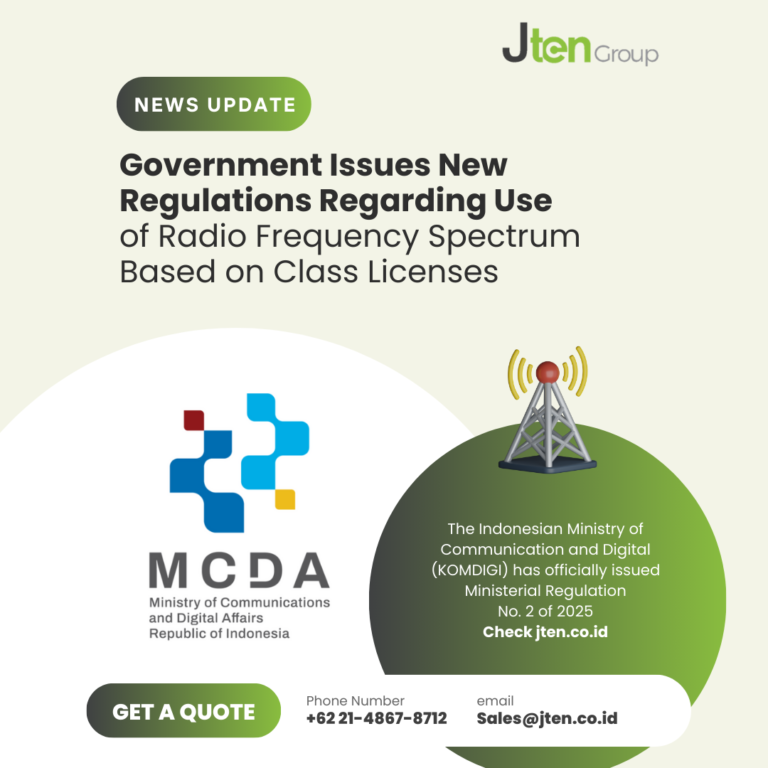
Jakarta (Jten) – The Ministry of Communication and Informatics (Kemkominfo) has set technical standards for Free Space Optics (FSO) telecommunications devices through Ministerial Decree Number 59 of 2022. This regulation aims to ensure that FSO devices circulating in Indonesia meet safety and interoperability standards.
What is Free Space Optics (FSO)?
FSO is a wireless optical communication technology that uses light waves in the air to transmit data. This technology functions like fiber optics, but without using physical cables. With a point-to-point system, FSO can send data in the form of images, videos, and radio signals at high speeds, reaching up to 160 Gb/s under optimal conditions.
Advantages and Characteristics of FSO
Compared to radio or microwave-based communication systems, FSO has several advantages, including:
- No frequency spectrum permit required.
- It is difficult to tap, so it is safer.
- Very small data error rate.
- Flexible and easy to install in various locations.
This technology is ideal for use in metropolitan area networks (MAN) and can be an alternative to expand the internet network at a more efficient cost.
Ministry of Communication and Information Regulation: Technical Standards Must Be Met
In Ministerial Decree 59/2022, FSO devices must meet two main technical standard categories, namely:
1. General Requirements
- Power Supply:The device must support 220V AC or DC power with certain tolerances.
- Electromagnetic Compatibility (EMC):Must pass emission and immunity tests according to SNI ISO/IEC CISPR 32 and CISPR 35 standards.
- Electrical Safety:Meets IEC 60950-1 or IEC 62368-1 standards to ensure operational safety.
- Laser Safety:The device must comply with Class 1 or Class 1M standards based on IEC 60825.
2. Interoperability Requirements
- Ethernet:Devices must comply with the IEEE 802.3 standard to be compatible with existing networks.
- SDH (Synchronous Digital Hierarchy):If using this technology, it must support the STM-16 or STM-64 protocol.
Standardization Awareness is Important for Industry
This regulation not only ensures the safety and quality of devices used by the public, but also provides certainty for manufacturers and distributors in supplying products that meet standards. In addition, this regulation also contributes to environmental protection and supervision of devices circulating in the market.
For manufacturers and distributors who wish to obtain certification from SDPPI, assistance services are now available to simplify the application process to certification.



